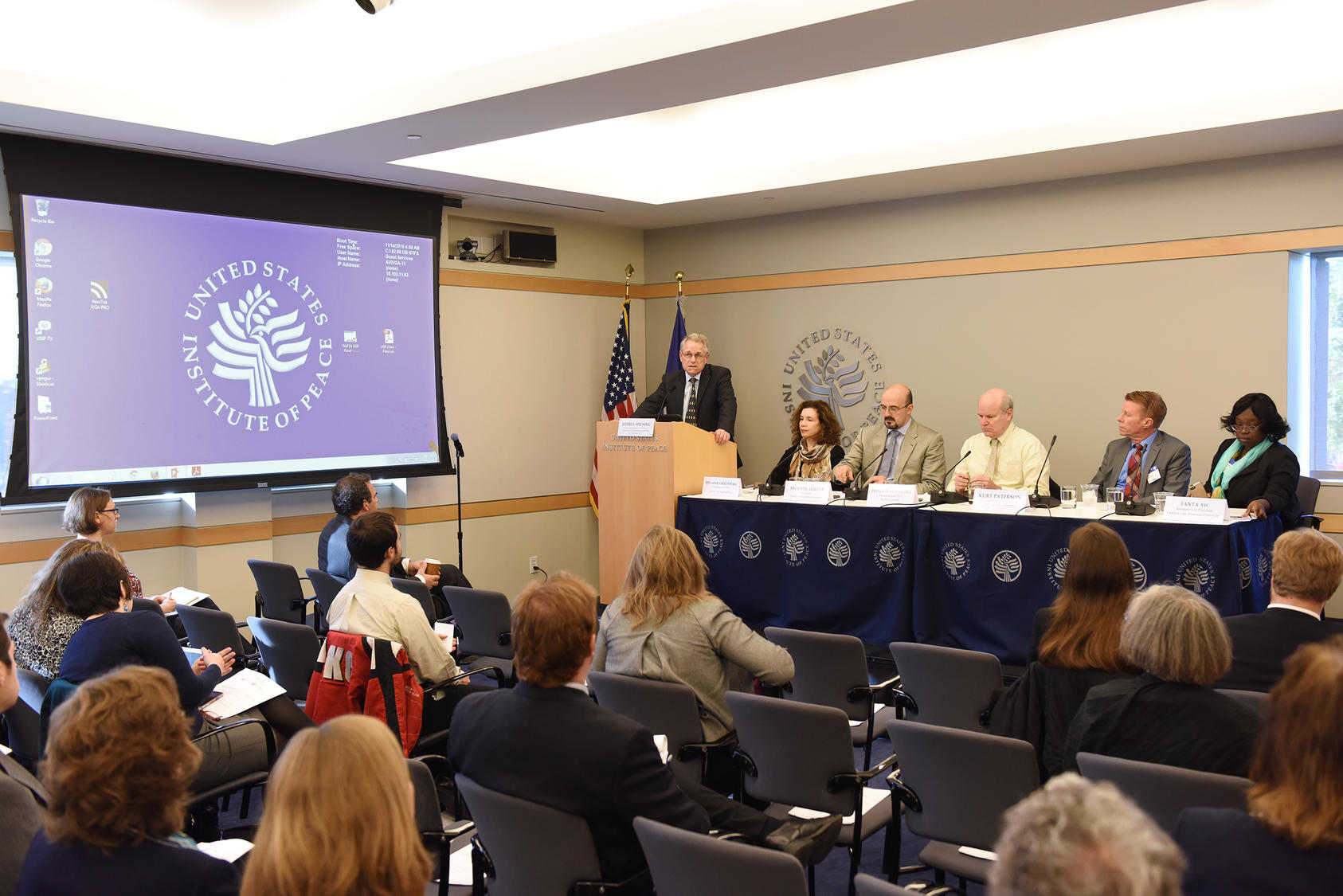The Role of International Education in Peacebuilding
How Can Students Best Be Engaged to Build Peace Locally and Globally
Through international education, students become more effective communicators, more engaged citizens, and learn to think critically about the relationships between local and global issues. These skills are all vital to building peace in a world full of conflict.

Amid persistent global conflict and inequality, it is more important than ever to recognize the capacity of international education to foster cross-cultural dialogues and help people become peacebuilders. At this forum, experts shared examples of how individuals and organizations are building peace locally and globally through international and intercultural engagement. They discussed strategies for engaging a diverse population of students and scholars in these learning opportunities.
This forum was co-sponsored by the Alliance for Peacebuilding, a non-profit, association of peacebuilding professionals and organizations, and by NAFSA: Association of International Educators. NAFSA (formerly the National Association of Foreign Student Advisers) has worked since 1948 to advance international education and exchanges. This event was webcast live. Continue the conversation on Twitter with #IEW2015.
Speakers:
Fanta Aw
Assistant Vice President, Campus Live, American University
Melanie Greenberg
President and CEO, Alliance for Peacebuilding
Shamil Idriss
President, Search for Common Ground
Kurt Paterson
Department Head, Engineering, James Madison University
Donald Steinberg
President and CEO, World Learning
Jeffrey Helsing, Moderator
Acting Vice President, Academy for International Conflict Management and Peacebuilding, USIP



